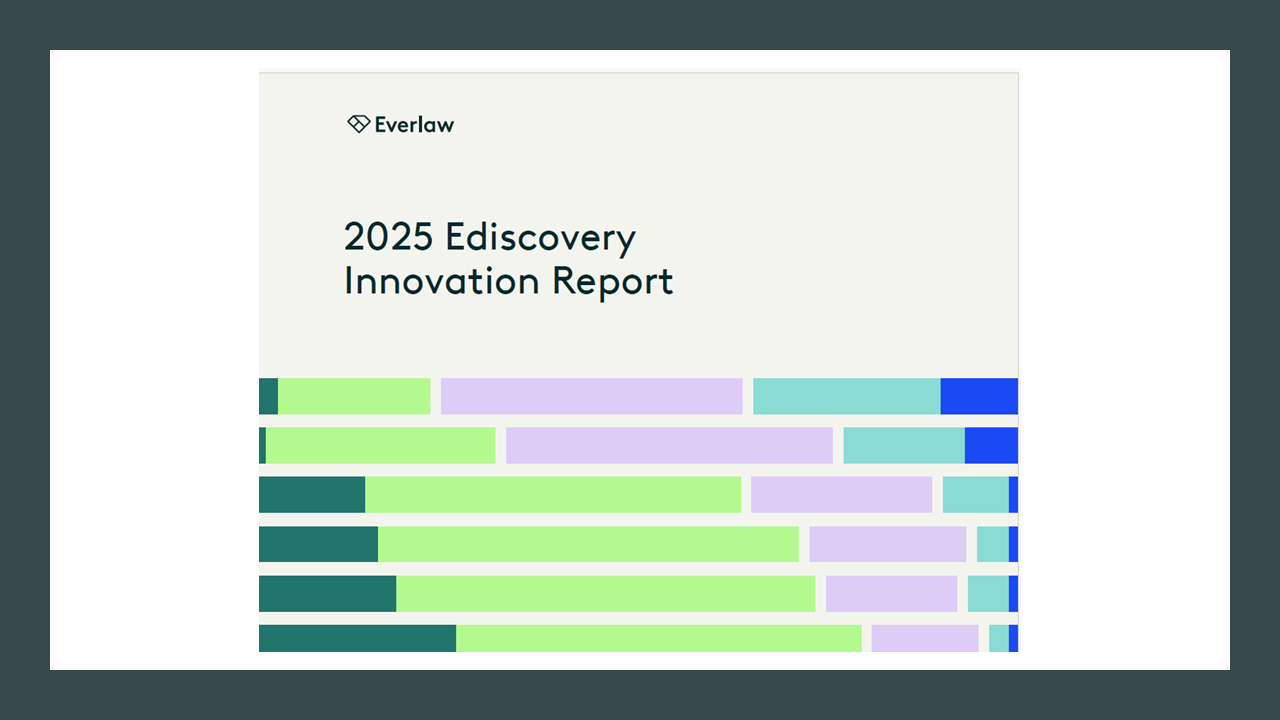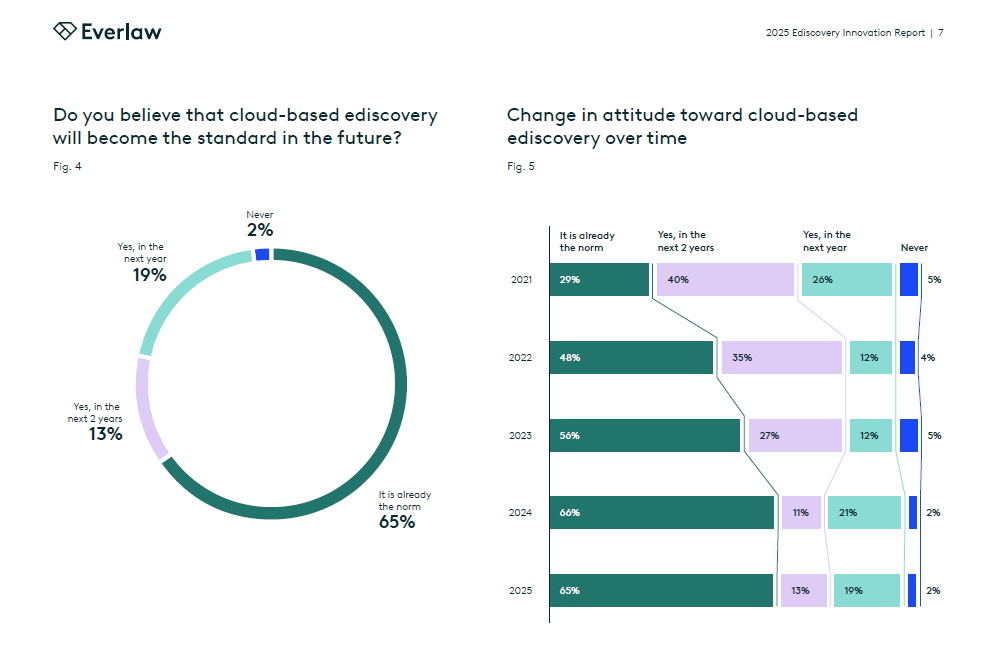Adoption of generative artificial intelligence among legal professionals involved in e-discovery is accelerating rapidly, with 37% of them now actively using the technology in their work, compared to 12% two years ago, according to the newly released 2025 Ediscovery Innovation Report by Everlaw.
The study, conducted in partnership with the Association of Certified E-Discovery Specialists and the International Legal Technology Association, surveyed 299 legal professionals across various organization types, including Am Law 200 firms, corporate legal departments, and public sector entities.
Efficiency Gains Driving Adoption
The report finds that AI users see significant time savings, with 42% of respondents saving between one to five hours per week through implementation of gen AI. When extrapolated annually, this represents 260 hours saved per individual – equivalent to 32.5 working days that can be redirected toward higher-value legal work.
For large firms, the organizational impact can be substantial. The study calculates that an average Am Law 200 firm with 757 employees could reclaim more than 196,820 hours annually through AI adoption – roughly equivalent to the productivity of 95 full-time employees.
“By freeing up lawyers from scutwork, lawyers get to do more nuanced work,” said Nancy Rapoport, a professor at UNLV’s William S. Boyd School of Law, who provided expert commentary for the report. “Generative AI with a human in the loop at appropriate times gives lawyers a more interesting workday and clients a faster, and likely better, work product.”
Cloud As Catalyst of AI Adoption
The report identifies a significant “AI divide” based on technology infrastructure. Legal professionals using cloud-based e-discovery software are three times more likely to actively use gen AI compared to those with on-premises deployments. This represents a decrease from last year’s five-fold difference, suggesting the gap is narrowing but remains substantial.
Cloud users also demonstrate greater optimism about AI’s potential, with cloud-based software users being four times more likely to feel positive about gen AI’s proliferation in the legal profession.
With regard to cloud adoption, the study shows continued growth, with 66% of respondents now using cloud-based e-discovery software, including 40% managing their cloud deployments in-house – a 5% increase from the previous year.
Billing Model Disruption
The report provides support for those who say that gen AI could disrupt the billable hour and other traditional methods of law firm billing.
Ninety percent of respondents believe gen AI either has already altered or will significantly change conventional billing practices within two years. Nearly 20% expect these changes within the next 12 months.
Alex Su, chief revenue officer at Latitude Legal, who also provided commentary for the report, said this presents law firms with a unique opportunity.
“There’s a unique opportunity right now for law firm leaders to experiment with new billing models, like flat fees or results-based pricing,” Su said in the report. “Clients may also wonder why they’re still being charged by the hour when AI is driving so much efficiency internally.”
Optimism Amid Concerns
The report finds that the legal profession’s attitude toward gen AI continues to improve, with 70% of respondents expressing positive or somewhat positive feelings about AI use in legal work – a 5% increase from 2024. Over 80% believe AI will make routine work easier and allow focus on higher-value tasks, while 76% expect improved job efficiency.
However, despite the positive sentiment and growing adoption, 63% of respondents disagree that the legal profession is prepared for AI’s impacts – although this represents an improvement from 72% in 2023 and 68% in 2024.
For those not yet using AI, the top barriers remain liability concerns, lack of trust, and cost considerations, the survey says.
Rapid Adoption Timeline
The report includes a striking comparison showing that, in just the three years since Chat GPT’s release, gen AI has achieved roughly the same adoption level as cloud-based e-discovery software – a level cloud-based software took a decade to achieve.
This represents an unprecedented pace of technological change in the traditionally conservative legal industry, the survey suggests.
Eddie Kim, Everlaw’s senior strategic data analytics advisor, characterized the findings as showing “a pivotal shift in how legal professionals view and utilize generative AI,” with teams “moving beyond initial curiosity and trepidation” toward strategic implementation.
Industry Implications
All told, the report suggests that legal professionals are at somewhat of a gen AI inflection point. While adoption is accelerating and benefits are becoming tangible, significant portions of the industry remain cautious about implementation.
The report indicates that law firms and legal organizations with modern cloud infrastructure are better positioned to capitalize on AI advantages, while those with legacy on-premises systems may face competitive disadvantages in the evolving legal technology landscape.
“Those who are able to get ahead of this shift and begin mapping out a generative AI roadmap now will be able to help their clients and organizations navigate the comprehensive change this technology promises,” the report says.
 Robert Ambrogi Blog
Robert Ambrogi Blog
